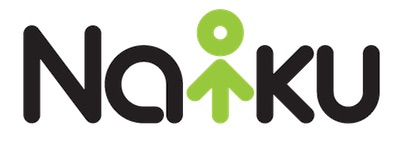
Scoring Formative Assessments
Often, when I do trainings or demonstrations on how to use the Naiku Platform for formative assessment purposes, I am asked how the assessments are scored and exported to grade books. Essentially, the question boils down to “Should formative assessments be scored and graded?“
This is a good question. However, I am hesitant to answer the question right away. Rather, I often answer the question with another question: “What feedback are you trying to give to your students and yourself when you grade that assessment?” To me, this is the more pertinent question.
Formative Assessment is about Feedback
Formative assessment is all about feedback. Whether the assessment is scored and graded is less important. It is more important to consider the feedback that can be given to both the students and the teachers and what each does with that feedback.
Feedback for Students
Students need much more than a numeric score or a letter grade from an assessment. They need information that allows them to further ask and answer the following types of questions?
- What concepts did I perform well or poorly on?
- For the concepts on which I performed well, did I really know and understand that concept?
- For the concepts on which I performed poorly, what kind of mistakes did I make?
- How can I avoid making similar mistakes in the future?
- How can I better prepare myself to learn this or similar material?
Feedback for Teachers
Feedback for students is obviously important. But equally important is feedback for teachers. The results of an assessment should provide information that allows a teacher to ask and answer the following types of questions:
- What concepts did my students perform well or poorly on?
- Were my test questions reliable and valid? (I will write more about reliability and validity in a future post.)
- What can I do differently to better teach or re-teach these concepts to the entire class or to specific students?
- How can I use this information to make myself a better teacher and assessor of student knowledge?
Actionable Feedback
It is important to stress that the feedback to both the students and the teacher must be actionable for it to be useful. For a student, a letter grade, a percent correct score, or a note saying “Nice job!” does not give enough information for the student to act upon. Similarly, for a teacher, knowing the class average on the overall test does not provide her with actionable information. Should the teacher re-teach the same information to all the students? Or, should the teacher reinforce one concept to a group of students and another concept to another group of students? The class average score does not provide enough information for the teacher to know. Feedback from formative assessments must be specific and actionable for it to be useful.
Back to that Question
As I stated earlier, the question of whether a formative assessment should be scored and graded is a good and important question, just not as important as the question on feedback. So, should formative assessments be scored and graded? The answer depends on who you ask. There is disagreement in the field. Some experts say that formative assessments should never be scored. They say that when an formative assessment is scored and graded, it automatically becomes a summative assessment. Others say that it is okay to score formative assessments.
Personally, I think that it is okay to score and grade formative assessments. Remember, students are motivated in one of two ways. Some are intrinsically motivated to do well. So getting a good grade or score does not motivate them to try any harder to do better. Some students however are extrinsically motivated. They need that external motivation of getting a good grade or score to try hard and do their best. For this reason, I believe that teachers should periodically score and grade their formative assessments. We must do all that we can to teach, reach, and motivate all of our students.

